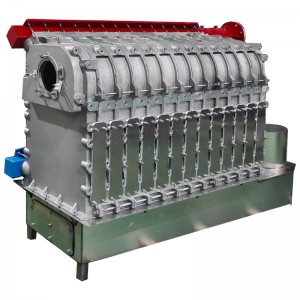- Afrikaans
- Albanian
- Amharic
- Arabic
- Armenian
- Azerbaijani
- Basque
- Belarusian
- Bengali
- Bosnian
- Bulgarian
- Catalan
- Cebuano
- China
- China (Taiwan)
- Corsican
- Croatian
- Czech
- Danish
- Dutch
- English
- Esperanto
- Estonian
- Finnish
- French
- Frisian
- Galician
- Georgian
- German
- Greek
- Gujarati
- Haitian Creole
- hausa
- hawaiian
- Hebrew
- Hindi
- Miao
- Hungarian
- Icelandic
- igbo
- Indonesian
- irish
- Italian
- Japanese
- Javanese
- Kannada
- kazakh
- Khmer
- Rwandese
- Korean
- Kurdish
- Kyrgyz
- Lao
- Latin
- Latvian
- Lithuanian
- Luxembourgish
- Macedonian
- Malgashi
- Malay
- Malayalam
- Maltese
- Maori
- Marathi
- Mongolian
- Myanmar
- Nepali
- Norwegian
- Norwegian
- Occitan
- Pashto
- Persian
- Polish
- Portuguese
- Punjabi
- Romanian
- Russian
- Samoan
- Scottish Gaelic
- Serbian
- Sesotho
- Shona
- Sindhi
- Sinhala
- Slovak
- Slovenian
- Somali
- Spanish
- Sundanese
- Swahili
- Swedish
- Tagalog
- Tajik
- Tamil
- Tatar
- Telugu
- Thai
- Turkish
- Turkmen
- Ukrainian
- Urdu
- Uighur
- Uzbek
- Vietnamese
- Welsh
- Bantu
- Yiddish
- Yoruba
- Zulu
Aug . 07, 2024 12:51 Back to list
Optimizing Free Heat Exchanger Performance for Enhanced Energy Efficiency in Thermal Applications
Free Heat Exchanger An Efficient Solution for Energy Recovery
In an age where energy conservation and environmental sustainability are paramount, the concept of free heat exchangers emerges as a promising solution to enhance energy efficiency across various industrial applications. A heat exchanger is a device that facilitates the transfer of thermal energy between two or more fluids at different temperatures, and the free heat exchanger takes this principle to new heights by utilizing available waste heat, thereby reducing energy consumption and operational costs.
The Principle of Free Heat Exchanger
The primary function of a free heat exchanger is to capture and reuse heat that would otherwise be lost in industrial processes. This is particularly relevant in sectors such as power generation, chemical processing, and HVAC systems, where large quantities of waste heat are produced. By effectively channeling this waste heat into useful applications, companies can significantly decrease their reliance on additional energy sources, which not only lowers expenses but also minimizes greenhouse gas emissions.
Types of Free Heat Exchangers
There are several types of heat exchangers that can be classified as free heat exchangers
. Some of the most common include1. Plate Heat Exchangers These consist of multiple thin plates that create channels for fluid flow. They are ideal for applications requiring high thermal efficiency and can handle a variety of fluids, making them versatile for different industries.
2. Shell and Tube Heat Exchangers This design features a series of tubes, one set carrying the hot fluid and the other the cold. This type is widely used in oil refineries, chemical plants, and power stations, benefiting from its durability and large heat transfer area.
3. Air-to-Air Heat Exchangers Often found in HVAC systems, these exchangers transfer heat between two air streams. They play a critical role in recovering energy from exhaust air and using it to preheat incoming air, thereby enhancing comfort and reducing energy use.
free heat exchanger

Benefits of Implementing Free Heat Exchangers
The integration of free heat exchangers into industrial operations comes with a myriad of advantages
1. Energy Savings By reclaiming waste heat, organizations can reduce their energy consumption, leading to direct cost savings and lower utility bills.
2. Reduced Environmental Impact Lower energy consumption correlates with decreased fossil fuel use and greenhouse gas emissions. This not only benefits the environment but also aligns with global sustainability goals.
3. Improved System Efficiency Free heat exchangers enhance overall system performance, allowing for better heat management and process optimization, which can result in increased output and improved product quality.
4. Regulatory Compliance Many industries face strict regulations regarding energy use and emissions. Free heat exchangers can help companies meet these regulations more effectively, avoiding potential fines and penalties.
Conclusion
The deployment of free heat exchangers represents a significant advancement in the quest for energy efficiency and environmental stewardship. As industries around the globe continue to seek innovative solutions to combat rising energy costs and stringent regulatory requirements, the adoption of these technologies becomes increasingly vital. With the dual benefits of cost savings and sustainability, free heat exchangers are not only a path forward for individual organizations but also a critical component in the broader movement toward a greener and more energy-efficient future. Embracing this technology can potentially transform waste into valuable energy resources, proving that efficiency and sustainability can indeed go hand in hand.
-
8mm Thin-Walled Cast Steel Manhole Cover Pallet Bottom Ring | Durable
NewsAug.04,2025
-
Premium Cast Iron Water Main Pipe: Durable, Corrosion-Resistant
NewsAug.03,2025
-
Durable Cast Iron Water Mains | AI-Optimized Systems
NewsAug.02,2025
-
High-Efficiency Propane Boiler for Baseboard Heat | Save Energy
NewsAug.01,2025
-
Premium Source Suppliers for Various Gray Iron Castings
NewsJul.31,2025
-
Durable Cast Iron Water Main Pipes | Long-Lasting
NewsJul.31,2025


